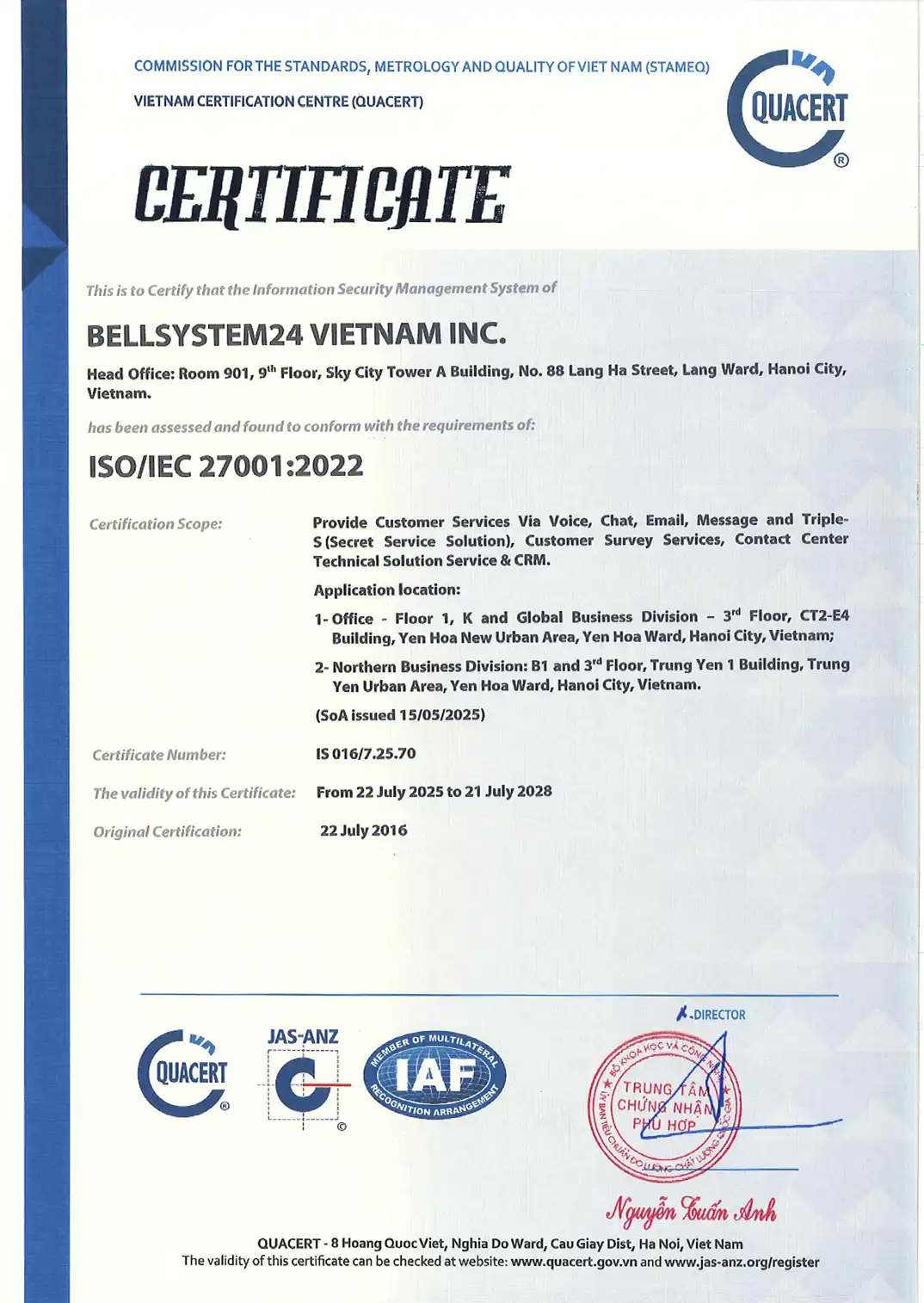In the course of business operations, encountering customer complaints is inevitable, especially issues arising from demanding customers. In cases of complaints from demanding customers, the situation can take a negative turn with just one unreasonable action from the business, or it can easily take a positive turn if the business understands the customer and offers appropriate solutions. In this article, based on many years of experience implementing customer service for many partners of Bellsystem24-Vietnam and the essence distilled in Win People's HeartsWe will outline the key factors and appropriate methods for handling situations when businesses or customer service representatives must resolve complaints from difficult customers.

Understanding How to Win Friends and Influence People.
Win People's Hearts is the world-renowned book by the author Dale CarnegieIt is considered the "bedside book" of many generations of readers. The Art of War offers advice on methods of behavior, communication, and cultivating attitudes in life. More than just a book, The Art of Human Relations is now a term used to describe a way of life in which people behave in a standard manner, with understanding and reason.
Persuade demanding customers with the Art of Persuasion.
Below are lessons learned from The Art of War that you can reflect on and apply to your customer service work.

1. Be understanding and patient.
The crucial factor in any communication stems from understanding the person you are talking to. It helps you understand your customers' thoughts and desires, enabling you to come up with persuasive solutions and problem-solving approaches that satisfy both parties (in this case, the business and the customer). But what is the key to understanding? For angry or difficult customers, the key is patienceReceive information with an open heart, without rushing, patiently listening to all complaints or demands—sometimes "excessive"—from customers to accurately identify the problem and understand their perspective, which is the basis for proposing reasonable solutions. Remember that you are working in customer service, which means you need to eliminate all irritation, anger, impatience, selfishness, ignorance, laziness, jealousy, hatred, and negative thoughts about your customers and in your life.
2. Always have a positive attitude.
You need to understand how happy your customers will be if you help them solve the problems they are facing. Why do customers become difficult? Everything happens for a reason. Assume that they have just experienced some kind of "shock" in their work or life, causing them to become temporarily difficult.
Dealing with demanding customers can drive you crazy, but once you win them over, you'll feel great about yourself and your abilities. Always maintain a positive attitude!
3. Always want to help others.
Try to find the good in yourself and the good in even the most demanding customers, and you will find the motivation to help them more. You want to solve your customers' problems, and that is an opportunity to let go of your selfishness. Help them wholeheartedly, start exploring the problem, analyze it, and guide your customers along with you until you reach the best possible agreement. Be wholeheartedly dedicated to helping others, and you will realize that the bond between you and your demanding customers will grow stronger, and the invisible wall that prevents mutual understanding between the two sides will gradually be removed. An American reformer and educator – Booker T. Washington once said that I believe that I have come to understand that the happiest people in the world are those who do the most for others.
4. Acknowledge your weaknesses.
The weakness here lies in the shortcomings of the business's operational processes and customer service. When customers react negatively, you need to accurately identify the root cause. The cause may stem from the customer, but part of the responsibility for the customer's resistance also lies with the business, whether it is a direct or indirect, objective or subjective reason. Admitting fault even when it is not directly caused by the company is the key to reducing customer "difficulty."
5. Accept with your heart – analyze with your mind.
What is a "reasonable and appropriate" solution to the problem? – That is when the solution you propose satisfies the customer's emotions and balances the interests of both the customer and the business.
- Receive with your heart: helps you thoroughly understand your customers' emotions and put yourself in their shoes, which is also an important stage in helping you soothe your customers' harsh reactions.
- Analyze rationally: Analyze and identify the causes of the problem. What is the root cause? Is it within the scope of the company's resolution? What are the responsibilities of the company and the customer in this case? Which solution will be proposed based on company policy?
- Resolve with heart and reason: A balance between emotion and reason will be struck to ensure fairness and humanity in the matter.
In customer service, complaints are always going to happen. and dealing with difficult customers is unavoidable, but everything will be resolved "smoothly" if you know how to adjust your attitude to suit each communication situation. The art of winning people over helps you practice standard behaviors and attitudes to achieve success in life. Consider the five tips above and apply them to your work.







